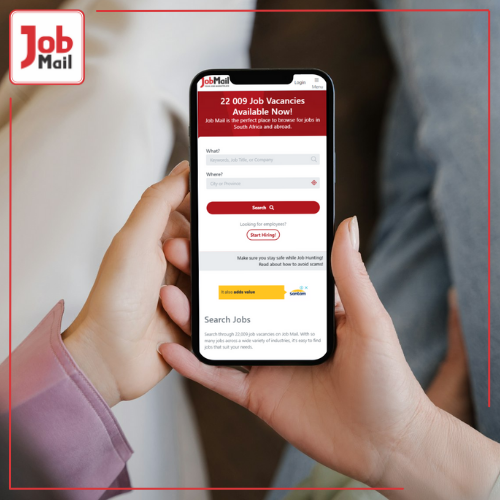Are you one of the many graduates entering the engineering workforce and wondering how to navigate this new phase of your career? Starting your professional journey in engineering can be both exciting and challenging. With the right approach, you can make a strong start and set yourself up for long-term success. This article provides valuable tips for recent graduates entering the engineering workforce, helping you transition smoothly from academic life to the professional world. Don't forget to visit Job Mail for a wide range of engineering job opportunities!
 Photo by energepic.com on Pexels
Photo by energepic.com on Pexels
Understand the Industry
- Research and Networking:
Before diving into the job market, take the time to research different sectors within the engineering industry. Networking is a powerful tool; attend industry events, join professional associations, and connect with experienced engineers on LinkedIn. This will not only give you insights into various career paths but also help you build relationships that could lead to job opportunities.
- Identify Key Skills:
Different engineering fields require different skill sets. Whether you are interested in civil, mechanical, electrical, or chemical engineering, identify the key skills and competencies needed in your chosen field. This will help you tailor your resume and cover letter to highlight relevant experience and skills.
Building a Strong Foundation
- Create a Standout CV:
Your CV is often the first impression you make on potential employers. Ensure it is well-organised, free of errors, and tailored to the engineering positions you are applying for. Highlight your education, internships, projects, and any relevant skills. Utilise action verbs and quantify your achievements to make your CV stand out.
- Develop a Portfolio:
A portfolio showcasing your projects and accomplishments can be a great addition to your job application. Include detailed descriptions, images, and any data or results that demonstrate your engineering skills and problem-solving abilities. This visual representation can give employers a better understanding of your capabilities.
 Photo by Thirdman on Pexels
Photo by Thirdman on Pexels
Gaining Practical Experience
If you haven't already completed internships or co-op programs during your studies, consider applying for these opportunities. They provide hands-on experience, allowing you to apply theoretical knowledge in real-world settings. Additionally, internships often lead to full-time job offers.
- Volunteering and Freelancing:
Volunteering for engineering projects or taking on freelance work can also enhance your practical experience. These opportunities may not always be paid, but they can significantly boost your resume and provide you with valuable skills and references.
Navigating the Job Search
- Job Portals and Recruitment Agencies:
Make use of job portals and recruitment agencies that specialise in engineering jobs. Websites like Job Mail offer a plethora of job listings specifically for engineers. Regularly check these portals and set up job alerts to stay updated on new opportunities.
- Tailored Applications:
Avoid sending generic applications to multiple employers. Instead, tailor each application to the specific job and company. Research the company’s values, recent projects, and work culture, and reflect this knowledge in your cover letter and interview responses.
Preparing for Interviews
- Mock Interviews:
Practice makes perfect. Conduct mock interviews with friends, family, or mentors to prepare for common interview questions. Focus on articulating your experience, skills, and how they align with the job requirements.
- Behavioral Questions:
Be prepared for behavioral interview questions that assess how you handle various work situations. Use the STAR method (Situation, Task, Action, Result) to structure your responses, providing concrete examples from your past experiences.
Continuous Learning and Development
- Professional Development:
The engineering field is constantly evolving. Stay current by pursuing additional certifications, attending workshops, and enrolling in online courses. Continuous learning will not only enhance your skills but also make you more attractive to potential employers.
- Soft Skills:
Engineering is not just about technical skills; soft skills like communication, teamwork, and problem-solving are equally important. Participate in activities that help you develop these skills, such as group projects, presentations, and leadership roles in student organisations.
Entering the engineering workforce as a recent graduate can be daunting, but with the right preparation and mindset, you can achieve success. Focus on building a strong foundation, gaining practical experience, and continuously developing your skills. By following these tips for recent graduates entering the engineering workforce, you'll be well-equipped to navigate the challenges and seize opportunities in your engineering career. Remember, Job Mail is an excellent resource for finding engineering job opportunities tailored to your skills and aspirations.
Read Related Articles
- Key Skills and Qualifications for Aspiring Engineers
- How to Write an Effective Engineering CV
- Top Engineering Interview Questions and How to Answer Them
- The Importance of Internships and Work Experience in Engineering
- Networking Tips for Engineering Job Opportunities in South Africa
- 8 Effective Strategies to Land a Job as an Entry-Level Engineer
- Top Engineering Specialisations and Their Job Prospects
- Understanding the Job Market for Engineers in South Africa
- How to Tailor Your Job Application for Different Engineering Fields
- Common Mistakes to Avoid in Your Engineering Job Search





